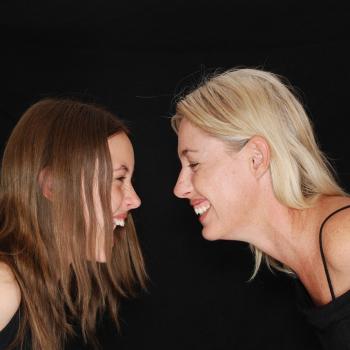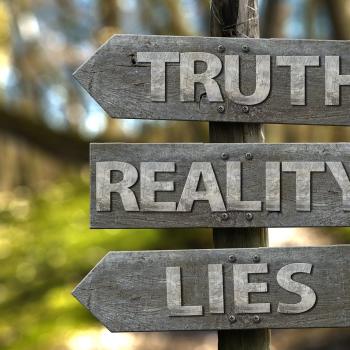
What time is it? Different times elicit different reactions from us. Time holds different meaning for us, depending on a number of factors. I, for instance, don’t know what this time means for you, what each one of you might be going through.
We cannot know exactly what it’s like right now for the students who are protesting on college campuses around the country, for those who must proclaim that Black Lives Matter in the face of blatant and covert forms of racism. We cannot know what it’s like for the people living in Beirut, or in Paris, or in Syria.
We cannot know what others are experiencing, what time it is for them, because we identify more easily with some than with other.
We identify with those more readily who are most like us in terms of our own identities, our conscious or unconscious understandings of race and class and nationality.
Hi! This is Susan. I wanted to share a message I heard this week. It moved my heart and I thought it was an ideal message for what many of us are experiencing at this time. The speaker was The Rev. Dr. Carolyn Browning Helsel, Assistant Professor of Homiletics, Austin Presbyterian Theological Seminary. I am honored to share her message with you today.
I’ve been reading about the students at Mizzou, the students who have experienced blatant and systemic racism. And I’ve been reading about students all over this country are fed up with what they have experienced as racial discrimination, racist epithets and threats, costumes that make a mockery of their cultures with stereotypes and disrespectful representations.
I do not know what they are going through because I am a white person, and I do not understand fully what it feels like to have this happen chronically.
But then I noticed my own reaction to the terror in Paris, I had a real visceral reaction, different than my reaction to hearing about the suicide bombings in Beirut the day before. With the news from Paris, I was locked into news media outlets, trying to find some answers, trying to find some conclusive evidence that the attackers had been caught, that I, thousands of miles away was safe.
You see, because the people in Paris—I identify with them. I’m not French, but it is easier for me to imagine myself being in France, because I’ve visited Paris, and the terror and fear is more accessible. An attack on Paris and I feel threatened.
Why not so with the terrorist bombings in Beirut?
On the radio program “The World,” a Lebanese doctor Eli Fares explained that for many, Beirut is just another city people associate with violence and war, another city in the Middle East where violence is an everyday occurrence, which means we assume such a thing is normal, and normal is overlooked.
When he saw the outpouring of support for Paris, he thought at first that it was nice to see people supporting the French, a sense of shared humanity. But he said, then when you put it in the context of [his] own city being torn apart by violence, which is not common place for Beirut, it made [him] feel that the Lebanese do not really matter on the global context.
He said, even though news media reported the blasts by calling them a “Hezbollah stronghold,” this was not an accurate representation of the city. Beirut is the most liberal city in the Middle East, and while it is only 50 miles from Syria, they’ve prided themselves on making headlines for keeping it together. The country hasn’t been at war for 25 years. So these bombings were very much a disruption to their daily lives in Beirut—they were not considered “normal.”
And even now, Fares says “Currently the malls are open, people are going to see the James Bond movie, even though it’s horrible. People are waiting for the new Adele album.” And when asked what he would say to the French, to the city of Paris which he loves and has lived in, he said in French: “You have a fantastic City, I love it a lot, and I will visit it soon.” And from someone who has experienced something of what they’re going through, he advises: “always seek out normality. To always look on the bright side. Things will get better.” Eli Fares.
Knowing that we will identify more easily with people who look like us means that we need to watch our reactions to those who are different from us when they call for change.
There are those who have been critical of the student groups protesting racial discrimination. But before we can critique these students, we need to understand our own reactions as being much more likely to side with those who look like us.
If you experienced a personalized sense of terror at witnessing the news in Paris, a fear for your own personal safety, then take that experience and apply it to things that are seen on the news in our country against persons of color or persons who look differently than you do.
If I am regularly exposed to pictures of persons who look like me begin treated unfairly and unjustly, then I would have had the same terrified feeling I did when reacting to Paris, a sense that I am not safe, that I have reason to fear for my life, and I would have that experience more chronically.
Phil Helsel, a pastoral theologian, wrote an article about the book of Ecclesiastes and collective trauma. Collective trauma, he says, is more than just isolated events, but instead is something chronic, something that tears apart communities, that hovers over the air and leaves individuals with a sense of broken-spiritedness.
Helsel writes that Ecclesiastes was written under colonial oppression, and that the psychological effects of collective trauma can be read between the lines. Collective trauma—something that is long-term, ongoing, chronic, destabilizing of community and creating an overarching narrative that the world is not trustworthy, collective trauma is more than isolated events of personal trauma. It eats away at the fabric of communal life.
As I turn to the news, I see evidence and further instances that perpetuate our collective trauma as a society. And when I say “our collective trauma,” I mean that there are many sources of trauma that persons in our society are experiencing.
There are intersections of oppression that lead to everyday traumas relating to race, gender, class, age, abilities, and sexual orientation. We need to understand more deeply how we all walk around participating in these systems of oppression, in some ways as the oppressed, and in others as the oppressor.
The collective trauma that results from these interlocking oppressive systems threatens to tear us apart as a community.
So what do we do? When times are extremely hard for some, and less so for others. When we do not know the times that each of us experience in any current moment. When some are in a time of war, and others at peace. Some are silent, and some are speaking. When all of these times are happening to different people, what sense do we make of it all?
Well, first we name it.
We name the collective trauma as the wickedness of our inherited racism, sexism, heterosexism, classism, and able-bodism, our nationalism and xenophobia, and our feelings of religious superiority over those from different religions and traditions.
We name the collective trauma that is our love for violence and our greed for domination. And we identify ways to change laws and systems that make the world more equitable. We look for ways to bring peace and justice.
And in the meantime, we also seek to mend the ties that have been broken as a result of this collective trauma.
We understand that some are in a time of needing to tear away, and that others are needing a time to sew up. We accept that all of these different times can be happening all at once across our society, and even in our own community. And we know that no one can tell another what time it is for them—each of us must describe it for ourselves.
So what wisdom do we gain from Ecclesiastes? Well, a persistent refrain that seems to be Qoheleth’s response to collective trauma is in the frequent admonitions to enjoy life, to enjoy one’s work, to enjoy being in community with others. To try and have fun. And while that sounds like a meager response to trauma, it also makes some sense.
When a community is experiencing collective trauma, there are no ties, there is no trust, there is no way of bonding.
But when we can laugh together, when we can sit around a table and have a meal together eating really good food, when we can share together in life’s pleasures, sometimes, maybe sometimes, we can regain some of those communal ties that have been broken in the aftermath of collective trauma.
But while we seek to enjoy life in the face of death and fear, we do not remain silent in the face of injustice—we must continue to speak out wherever we find injustice. But we also maintain a commitment to ourselves in the midst of fighting for greater equality that we allow ourselves to enjoy living this gift of life that we have been granted.
– The Rev. Dr. Carolyn Browning Helsel













